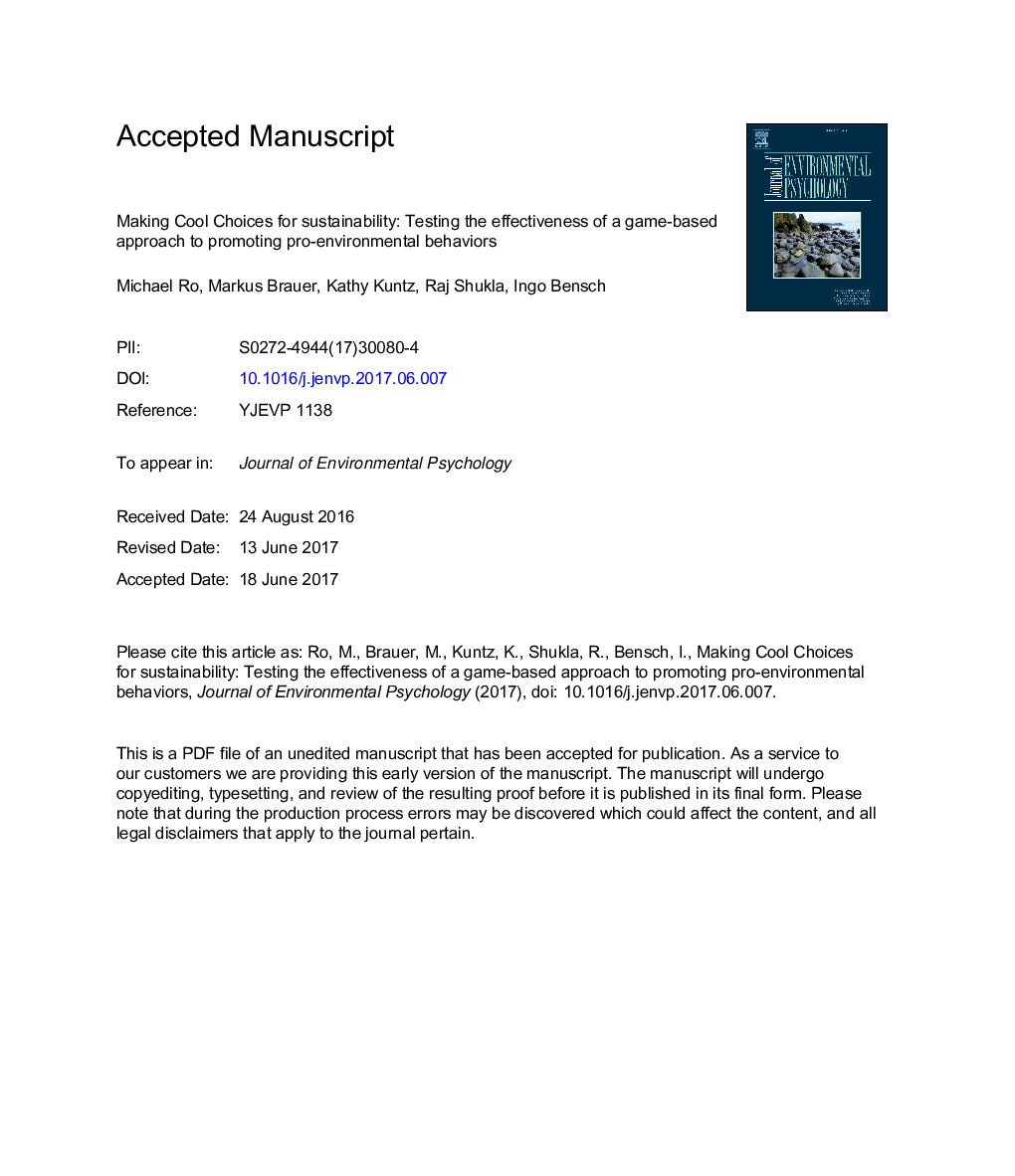| Article ID | Journal | Published Year | Pages | File Type |
|---|---|---|---|---|
| 5034873 | Journal of Environmental Psychology | 2017 | 47 Pages |
Abstract
Attempts to get people to reduce their carbon footprint have had mixed success at best, as many interventions focus primarily on increasing awareness or knowledge. Gamification has recently been used to break habits and induce enduring behavior change. Building upon this work, we designed a new game-based sustainability intervention and tested its effectiveness in two large-scale field studies (total NÂ =Â 1975). In Study 1, playing our new sustainability game significantly reduced people's household electricity consumption six months after the game. In Study 2, playing the game led to increased self-reports of household efforts to save energy and perceived importance of sustainability. In both studies, high-energy consumers changed their environmental behaviors and attitudes the most. The research demonstrates that it is possible to induce a long-term change of habits in the sustainability domain. It also shows that neither attitude change nor conscious implementation intentions are necessary for behavior change.
Related Topics
Social Sciences and Humanities
Psychology
Applied Psychology
Authors
Michael Ro, Markus Brauer, Kathy Kuntz, Raj Shukla, Ingo Bensch,
